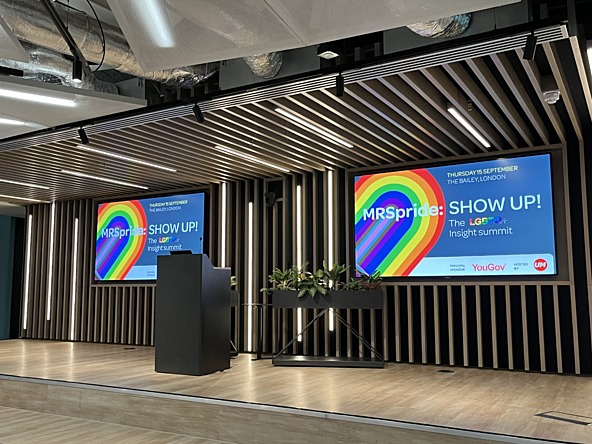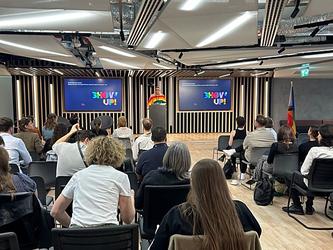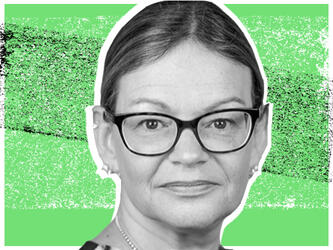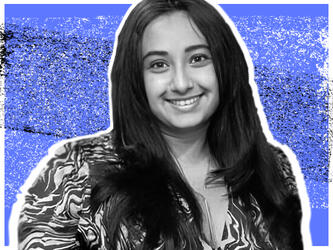Lived experience: MRSpride’s Show Up conference

Lived experience
Renato Verdugo, staff user experience researcher at YouTube, spoke personally about the idea of lived experience in research, and hailed its impact on participants. Verdugo works on YouTube’s CultureLab project, which captures YouTubers’ daily lives and how they interact with and create media, focusing on individuals rather than on demographic traits.
“I believe research is human,” Verdugo said. “What I mean by that is it is easy to lose sight of the empathy-driven human connection we seek as researchers, especially in an industry that more and more has fancy acronyms, software-as-a-service and people trying to sell us subscriptions. It is valuable to have tools, but it is easy to over-focus on the tools and forget about the humans.
“Being human means a celebration of lived experience. For me, lived experience is that first-hand experience of the world around us and the world we interact with. By its own definition, lived experience has to be subjective. It is through these deep personal perspectives, beliefs and points of views that we as researchers can really connect with others.”
A question of sport
Sport, particularly football, has a long history of homophobia that some campaigns have sought to tackle. The Rainbow Laces campaign in the English Premier League, where players wear rainbow-coloured shoelaces on their boots during games, is one such example.
Gregor Jackson, director at Walnut, told the conference that “team sports are a barrier for many in the LGBTQ+ community”, according to research carried out for Stonewall, which runs the Rainbow Laces campaign. Their surveys found 66% believed homophobia and transphobia are a problem in sport. Sports personalities who were LGBTQ+ were less likely to be seen as treated equally to heterosexual colleagues, with two in five respondents agreeing with that statement compared with almost half when asked the same question for race and religion.
Robbie de Santos, director of communications and external affairs at Stonewall, said that the Rainbow Laces campaign had reached 21% of general population and 33% of sports fans. “Across every age and demographic graphic, those who saw the campaign were more likely to have positive views,” de Santos added. “Our focus on telling stories, saying sport is everyone’s game, showing LGBTQ+ people in sport – it has that impact.
“It is about building confidence and creating an environment where people feel they can challenge [homophobia].”
Brand authenticity
Pride month has regularly seen a stream of LGBTQ+-branded products released, but there can be a lack of understanding from brands of the issues directly affecting the LGBTQ+ community.
Luke Powney, associate director at Yonder Consulting, said: “Brands often don’t have an authentic or meaningful story to take to consumers. That’s what the community wants – they want to know you are going to them with a story to tell and not just doing something for the ‘pink pound’. The brands we spoke to don’t have that and haven’t built that yet.”
However, Powney added that many brands were looking at addressing diversity internally before they felt confident in making strides externally, and were seeking people with lived experience to help them with launching campaigns.
“They want to make sure the teams making these decisions are more informed and more inclusive,” Powney said. “Brands believe it leads to helping them to being able to position themselves and have a meaningful story to tell. That position is not possible, in brands’ eyes, without that internal team.”
Turning things around
Manchester Pride has had mixed reviews in recent years with the addition of a music concert element having drawn some criticism from distracting from the protest roots of the event. Mustard Research worked with Manchester Pride to understand what the local community felt about the annual event.
Chloe Stephenson, senior research executive at Mustard Research, said that there were a lot of diverse views in the community, with particular splits between those who wanted to retain a ‘party’ element to Pride and those who wanted greater focus on protest.
Stephenson said this was an issue for the project: “Going into this research, we were already aware of the loudest voices in the community. What we found from speaking to people is those loudest voices are often at odds with each other not just about what the biggest issues are for the community as a whole, but also what they want from Manchester Pride.
“We found that conflicting ideologies and agendas derailed a lot of our conversations to the point where as researchers we had to get it back on track and make sure we were there for the purpose of the research: what you wanted from Manchester Pride.”
Carla Berzolla, research manager, said that ultimately there was a lot of unhappiness among Manchester’s LGBTQ+ community about how Pride was run. Only 19% of LGBTQ+ respondents felt Manchester Pride ‘represents people like me’ with claims that “the fundraising and protesting elements had been forgotten – they had been put on the backburner”.
Among LGBTQ+ respondents, 32% said they thought Manchester Pride was successfully promoting and raising awareness of LGBTQ+ issues, in contrast to 69% of heterosexual respondents. The results prompted a rethink of the pride event, with a refocus on education, campaigning and community.

We hope you enjoyed this article.
Research Live is published by MRS.
The Market Research Society (MRS) exists to promote and protect the research sector, showcasing how research delivers impact for businesses and government.
Members of MRS enjoy many benefits including tailoured policy guidance, discounts on training and conferences, and access to member-only content.
For example, there's an archive of winning case studies from over a decade of MRS Awards.
Find out more about the benefits of joining MRS here.













0 Comments